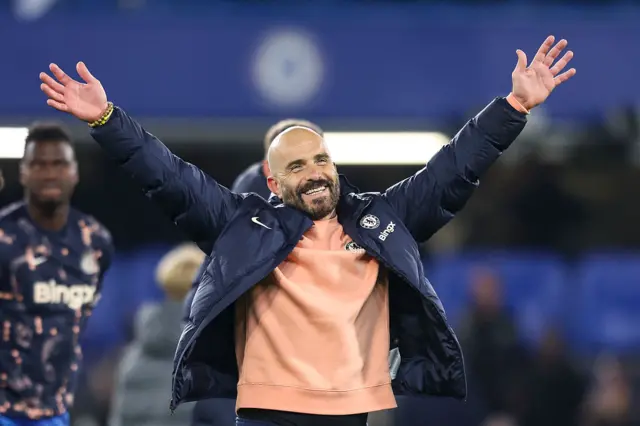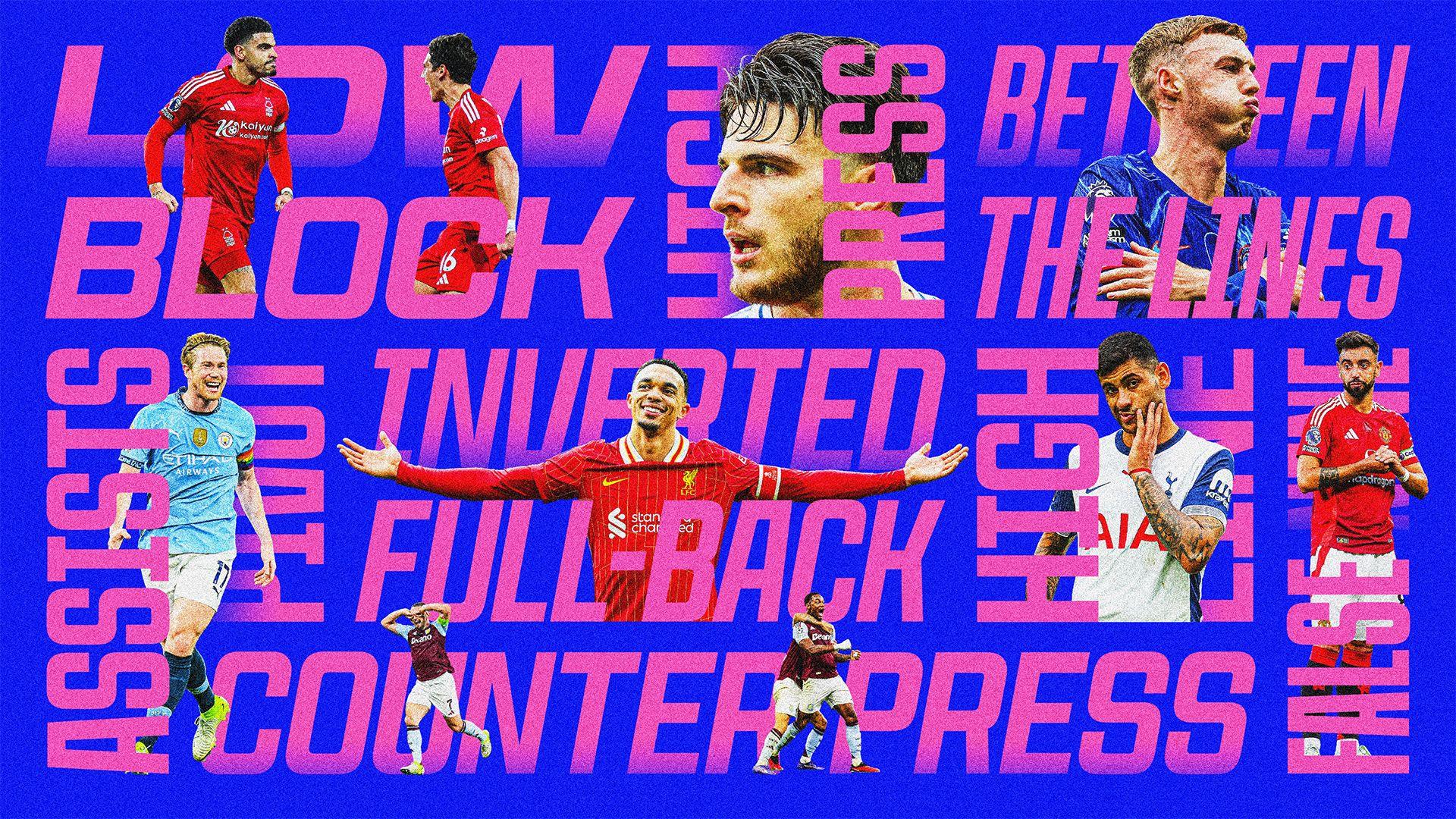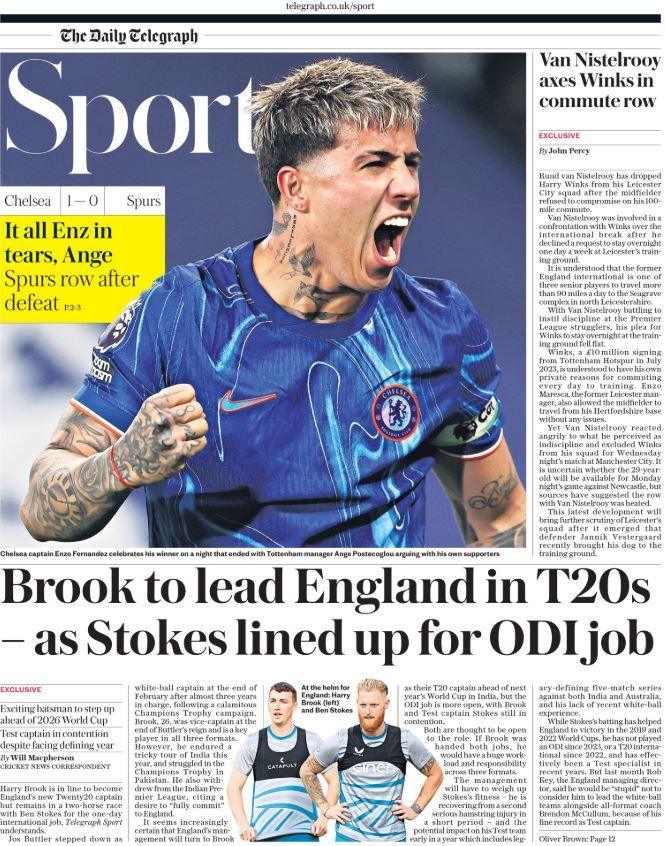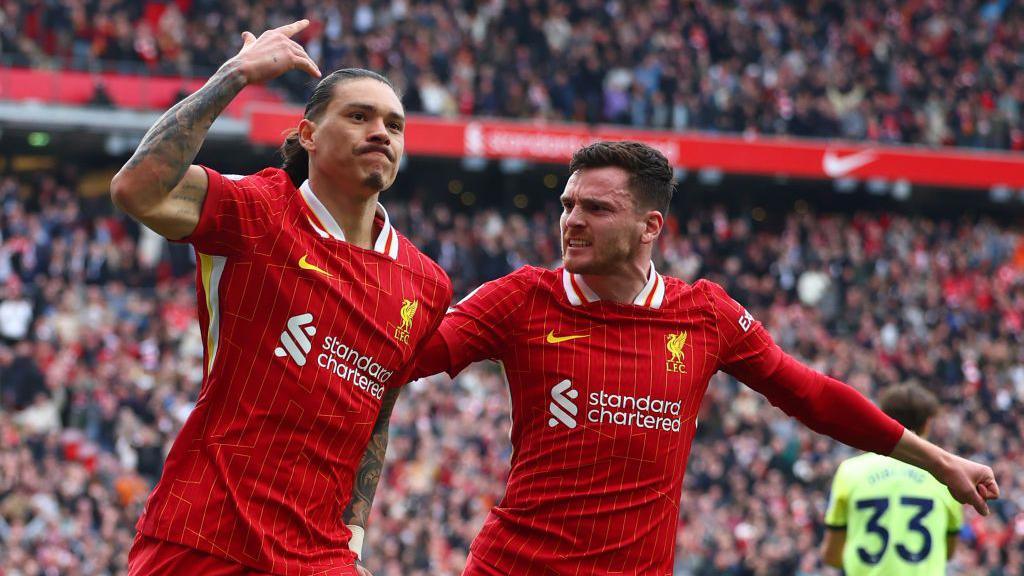News And PoliticsCommunications And EntertainmentSports And FitnessHealth And LifestyleOthersGeneralBusiness And MoneyWorldnewsNigerianewsRelationship And MarriageStories And PoemsArts And EducationScience And TechnologyCelebrityEntertainmentMotivationalsReligion And PrinciplesNewsFood And KitchenHealthPersonal Care And BeautyBusinessFamily And HolidaysStoriesIT And Computer ScienceSportsRelationshipsLawLifestyleComedyReligionLifetipsEducationMotivationAgriculturePoliticsAnnouncementUSMLE And MedicalsMoneyEngineeringPoemsSocial SciencesHistoryFoodGive AidBeautyMarriageQuestions And AnswersHobbies And HandiworksVehicles And MobilityTechnologyFamilyPrinciplesNatureQuotesFashionAdvertisementChildrenKitchenGive HelpArtsWomenSpiritualityQuestions AnsweredAnimalsHerbal MedicineSciencePersonal CareFitnessTravelSecurityOpinionMedicineHome RemedyMenReviewsHobbiesGiveawayHolidaysUsmleVehiclesHandiworksHalloweenQ&A
Top Recent
Loading...
You are not following any account(s)
dataDp/3575.jpeg
Futbol

~3.0 mins read
Chelsea beat Tottenham 1-0 to move back into top four Spurs winless in four and 14th in Premier League Fernandez heads Chelsea ahead after the break Sarr has long-range equaliser ruled out after VAR check Get Involved: #bbcfootball, via WhatsApp on 03301231826 or text 81111 (UK only, standard message rates apply) Enzo Fernandez scored as Chelsea beat Tottenham to move into the Premier League's top four and boost their hopes of Champions League football next season. Defeat for Spurs piled more pressure on head coach Ange Postecoglou - whose side stay 14th, and remain on course to finish outside the top 10 for the first time since 2008. The Blues, boosted by the returns from injury of Cole Palmer and Nicolas Jackson, dominated proceedings at Stamford Bridge, but they were frustrated by a goalless first-half having missed plenty of opportunities. They carried the same threat after the interval and were rewarded in the 50th minute when Fernandez headed home Palmer's inch-perfect delivery. Moises Caicedo swept a crisp volley past Guglielmo Vicario moments later, but the goal was ruled out for a marginal offside in the build-up following a four-minute VAR review. Tottenham then had an equaliser ruled out after substitute Pape Matar Sarr fired in from 20 yards out. Referee Craig Pawson, advised by VAR to have a look at the pitchside monitor, overturned his decision after watching the Spurs midfielder catch Caicedo with his studs before taking aim. The result moves Chelsea to fourth in the Premier League, knocking reigning champions Manchester City down to fifth and Newcastle to sixth. The Blues were in scintillating form from the off as they returned to action following the recent international break. They were unlucky not to score in the first minute, when Jackson hit the post after Micky van de Ven's attempted clearance rebounded off the forward's shin. The home fans were quick to celebrate when they though Malo Gusto had scored with a fierce strike before quickly realising it had rifled into the side-netting. Vicario made a superb fingertip save to deny Jadon Sancho, while Jackson continued to cause Van de Ven and Cristian Romero all sorts of problems with darting runs towards the Tottenham penalty area. And it was the two Spurs centre-backs who were caught off guard when Fernandez drifted easily between the pair and leapt highest to direct Palmer's cross in. A strong end to the season is well within reach for Enzo Maresca's side. Bolstered by the return of key players from injury, a Champions League spot is in their sights, while the chance for silverware in the Europa Conference League seems a genuine possibility. After looking lacklustre for much of the game, Tottenham's surge forward in search of an equaliser came all too late. Son Heung-min was agonisingly close to netting an 89th-minute leveller as he slided in to reach Brennan Johnson's cross, but Robert Sanchez scrambled across his goalline brilliantly to deny the Spurs captain. While Chelsea constantly hassled their visitors, Tottenham looked panicked in defence, sloppy in possession and struggled to fashion many clear-cut chances. Vicario, meanwhile, provided little reassurance to his backline with multiple wayward passes and an inability to command his box convincingly. Frustrations boiled over on the stroke of half-time when Cristian Romero's shove on Levi Colwill caused a maul as players squared up to each other. But Tottenham were unable to channel their emotions into anything worthwhile. And in the wake of this defeat, Postecoglou's future at the club becomes all the more uncertain. Some away fans directed chants of "you don't know what you're doing" at the Australian manager, who becomes the first-ever Spurs boss to lose his first four fixtures against Chelsea. But there is still a hope for success in the Europa League - and a first trophy since 2008 - with a quarter-final first leg against Eintracht Frankfurt next week.
All thanks to BBC Sport
dataDp/3575.jpeg
Futbol

Football's New Phrase Book - Modern Language Or Just Jargon?
~10.4 mins read
Is it simply the modern language of football? Or just "jargon" dressing up the game's time-honoured glossary of terms in fancy new clothes? From a "low block" to a "high press", football's phrase book has gained countless new entries in recent years that have become part of the conversations before, during and after games. These words alone spark debate from supporters to players past and present, from the cynics who dismiss them, to the newer generation who embrace them as an integral part of the football experience. BBC Sport pundits Pat Nevin and Chris Sutton, who have to decide which to use or avoid, have outspoken views on the subject. Former Scotland forward Nevin says: "I think it's just jargon used in every industry. It is showing someone you're in a little cosy club. You are saying 'we know about these things' and it makes you sound a bit cleverer. "It is saying 'we're in the club, we're in the know - you're not'. I never use them, or if I do I immediately apologise or flag it up. "For instance, I might say a team is defending really deep, then add 'or as they say in the modern parlance, a low block'." Sutton said: "It's just the evolution of the game. They're just different words aren't they? I'm not one who gets too stuck in the past - but there might be one I take real umbrage with." So what are these modern terms? And what do they really mean? The official description, according to statisticians Opta and data firm Second Spectrum, is when "a defensive team has recently lost the ball and has not had time to re-organise its defensive shape. [The team] is out of position, and is either pressing or actively moving to get back into a stable defensive position". Nevin: "The gold standard of the new jargon. It says you probably don't know what you're talking about, but you want people to think you are. "I have never used it, other than facetiously. There should be a ban on it. Let's invoke a three-strike-and-out transitions law. "Use it once as a co-commentator and you get a stern look, twice a yellow card, then three times you're on your way. "What does it mean? You've given the ball away again. That's it. "When coaches say they have to work on transitions, they should just not give the ball away and be better." Sutton: "I've always thought transition is when you win the ball back. It's a change isn't it? It's what the word means. Change from defending to attacking." A "low block", as defined by Opta, is the starting position of your team from your own goal. Interestingly, Nottingham Forest - third in the Premier League and heading towards the Champions League - are currently second-lowest with a starting position of 39.6 metres, sandwiched in between Southampton (39.8 metres) and Ipswich Town (39.4 metres) who are both almost certainly heading back to the Championship. Nevin: "Nottingham Forest suggests an exception and a successful strategy, but my overall definition is it means you're not good enough as a team, you can't get the ball out, so you defend deep. "There you go - it's defending deep. It's just easier to say 'we're playing in a low block' rather than admit you're not good enough to play out so we have to sit back and play on the break. "It's a fairly modern, generational thing. You can spot it a mile away. You can't wear a big sticker saying 'I've got my coaching badges' but this is almost telling people you've read the manuals and you've got your badges." Sutton: "It's the new phrase for defending your own box or defending deeply. I don't know where some of these phrases come from." This is a defensive tactic where a team places its defenders higher up the pitch. Much focus has been placed on the "high line" Ange Postecoglou employs at Tottenham Hotspur, but the current highest line in the top flight is Manchester City at 45.9 metres. Nevin: "This is the one I'm absolutely fine with, because it is descriptive and perfectly explains what is happening to someone who may not know football very well. "It's probably much older than the rest of the cliches and I would say it would have been used when I played." Sutton: "Fine by me. Making sure the distance between defenders and midfield isn't too great, teams can't play through out and you look to catch careless forwards offside. "If you use this phrase, listeners or viewers will understand exactly what you mean." This means defending high up the pitch to force the opposition into mistakes. Nevin: "New jargon. Been done for years. It's not a new Pep Guardiola thing. 'The Crazy Gang' at Wimbledon used to do it when I played and were brilliant at it. "The old phrase was 'closing down'. You close the opposition down and get right in their faces high up the pitch. It's been rebranded as some new concept but every team used to do it. "The recent great Barcelona sides were the high watermark, but it started in the 1970s when Johan Cruyff used to do it with Ajax. I did it for the first time in under-15s football at Celtic Boys Club. "When I played, we usually did with a sign, which could be anything, but the favourite sign was 'when you see that big useless centre-back get the ball, all go in to try and make him give the ball away'." Sutton: "If someone talked to me about a 'high press' when I was playing, I would have thought they were telling me to iron my shirt. "It's closing down and I suspect Herbert Chapman's great Arsenal side in the 1930s was doing this. "It's a classic from people who think football didn't exist before 2010 and the '60s, '70s and '80s never happened. Do they think players of that era just stood around in a rigid 4-4-2 and didn't run or close down?" This is when teams try to win the ball back quickly after conceding possession, to avoid being hit on the counter-attack by their opponents and potentially starting an attack of their own. Nevin: "It's not one I've come across too much but you press up to try and retrieve the ball immediately. Seems simple enough." Sutton: "I used this phrase north of the border and got absolutely rinsed by my fellow pundits. "I meant when you won the ball back high up quickly by shutting down the opposition. Just another version of the press, and you're then on the counter-attack." High turnovers, as measured by Opta metrics, are "the number of possessions that start in open play and begin 40 metres or less from the opponent's goal". Nevin: "Of limited use. Winning the ball back high up the pitch." Sutton: "When someone mentions 'turnovers' to me I think of the apple things you used to buy in shops. "You hear all this stats-based stuff now and it's basically winning the ball in the opposition half, that's all." Spurs boss Postecoglou called this "the most useless statistic in world football. Seriously, it could fall off your backside, fall to somebody on the halfway line who scores and it's an assist. It doesn't impress me". The Opta definition is simple - the player who passes the ball to the player who scores. Nevin: "I like assists because I got far more assists than goals in my playing career, but Ange makes a great point. I used to keep a record of them. I agree with Ange, but as a phrase people do know what it means. "I was always a bit miffed on the other side of that argument when I beat seven men, drew the keeper and passed it to John Aldridge to tap in at Tranmere." Sutton: "I take Ange's point. There could be a proper assist but what if the ball hits you on the backside? Is that really an assist? "And what about when a player lets the ball run through his legs, or draws a defender out of position. That's one for the nerds and laptop crunchers." This is measured by simply adding assists and goals. Nevin: "I hate the wording but I'm OK with the concept. I think the new purveyors of football parlance need to up their game a bit here. It needs a better phrase. Very simplistic this one, but I'm fine with what it stands for." Sutton: "It used to just be goals, but now this has been added. Next throw-ins and corners will be in there, all sorts of things. I think people do get what it means, though." Typically a striker (often wearing number nine) dropping deeper into midfield to link play, disturb the opponents' defence and make space for others, rather than playing in the traditional forward's role. Nevin: "I'm absolutely OK with this. The first time it was used to me was in 1982 at the European Under-18 championships when I was with Scotland. We won it in Finland and I was player of the tournament. We beat Czechoslovakia in the final so I was very happy with it. "The coaches were Andy Roxburgh and Walter Smith. Andy ended up becoming Uefa's first technical director. He used a phrase 'unreal nine' or 'false nine'. It simply means no-one playing as as a traditional centre forward. It is a false striker. "We rotated it with Scotland between myself, Ally Dick of Spurs and Gary Mackay of Hearts. We had two wide attackers and a false nine but all three of us could do all three jobs." Sutton: "What is the difference between a 'false nine' and 'number 10'? Think of Roberto Firmino at Liverpool. Someone who is essentially a forward who drops deep to show for the ball and link everything. "At Blackburn when we won the title, we played 4-4-2 but a striker would drop deep when the opposition had the ball to attach themselves to a midfielder. Is that the same thing?" Three phrases for the price of one. Effectively a defensive midfielder - or two - used by some teams to act as a shield for defence and link the whole side together. As the word means, "a central point". Nevin: "It's just a new name for the deep-lying central midfield player. In South America they would call that a 'five'. It is trying to pigeonhole all of them into one simple term. "Chelsea play with two pivots, two 'sixes'. It's 4-3-3 with two deep-lying midfield players. It was used with Scotland when I played. Graeme Souness could do that easily and brilliantly. "Chelsea do it all the time with Moises Caicedo and they have Enzo Fernandez, Romeo Lavia and are asking Reece James to do it as well." Sutton: "I don't know where this 'pivot' thing came from. It was a defensive midfielder, then a holding midfielder - and now we've got pivot. "The 'pivots' I played with were Neil Lennon at Celtic and David Batty at Blackburn. Strong defensive holding midfield players." A full-back who moved into a more central possession when their team has the ball. Can be an extra midfielder and helps both attacking and defensive strategies. Nevin: "Stevie Clarke and myself did this at Chelsea. It can be described, as it used to be, as an underlapping full-back, someone stepping into midfield. [Inverted full--back] is an upgrade linguistically and one I don't mind. "When I hear hybrid full-back, I can just say I won't be using that one and never will." Sutton: "I always think about left-footers playing on the right and vice-versa here, enabling them to step inside into midfield. We had Mark Bowen at Norwich City but we used to just call them attacking full-backs. "As for hybrid' - that just makes me think of cars." This is taken to mean the spaces between the edge of the penalty box towards the 'D' on either side of the area. Nevin: "Instantly droppable. Nonsensical. It only exists when a little gap opens up, basically just looking for a space between the striker and the midfielder. I don't think it's a very helpful phrase and is pretty meaningless." Sutton: "An absolute no-no. It's simply wrong. What a load of nonsense. "How can you have a half-space? A space is a space is a space. If I dig a hole it's a hole. It is not a half-hole. This phrase is believed to have originated in American football to describe an area of the field that forms around the quarterback on passing plays. Nevin: "Pockets of space is telling people to find space, It's just new words for the same thing." Sutton: "I get this a bit more. I think that's allowed. You can also call it a zone. "I think this is the space in between the opposition defence and midfield, in the wider channels when teams play with three forwards and the highest forward will drop into spaces. "As a description people will understand what you're talking about." This is used to describe spaces between lines line of forwards and midfield players or midfield players and defenders. Nevin: "Teams never stand in straight lines, which is the silliness of all of this. If the formation has what you might call 'lines', you're trying to find the gaps and spaces between those lines. "The last thing you do is go there between the line. You have to arrive when the ball arrives in there. That's the skill Cole Palmer is the best at it in the Premier League. Never stand there - always arrive there." Sutton: "I don't know who thought of this. Teams don't just line up in straight lines in a 4-3-3 or 4-4-2. "The term itself presumably means you try to play through these so-called 'lines', mainly between the midfield and attack." And one to watch out for... This was coined by, and has been used for, Bayern Munich's Germany attacker Thomas Muller and translates to "space investigator". Muller described himself as "an interpreter of space". Nevin: "I'll leave the German to others." Sutton: "Does what it says on the tin."
All thanks to BBC Sport
dataDp/3575.jpeg
Futbol

Arsenal To Pay Big Wages For Williams - Friday's Gossip
~3.2 mins read
Arsenal will have to make Nico Williams one of their top earners, Manchester United chasing striker Lorenzo Lucca, Tottenham ready to fight for Dejan Kulusevski. Arsenal will have to make Spain winger Nico Williams, 22, one of club's top earners to sign him from Athletic Bilbao this summer. (Telegraph - subscription required), external Manchester United have made Udinese and Italy striker Lorenzo Lucca, 24, their top target going into the summer transfer window. (Sun - subscription required), external Tottenham hope to avoid losing Sweden midfielder Dejan Kulusevski, 24, this summer amid interest from AC Milan and Napoli. (GiveMeSport), external Bayer Leverkusen have made contact with representatives of German Stefan Ortega, 32, and could sign the Manchester City goalkeeper for around 8m euros (£6.7m). (Bild - in German, subscription required), external Deportivo La Coruna winger Yeremay Hernandez, 22, is attracting interest from Arsenal and Chelsea. (Teamtalk), external England forward Marcus Rashford, 27, will have to consider taking a wage drop if he is to seal a permanent move to Aston Villa from Manchester United this summer. (Football Insider), external Up to 11 Arsenal players, including Ukraine left-back Oleksandr Zinchenko, 28, and Poland defender Jakub Kiwior, 25, could depart this summer to bolster the club's spending power in the transfer window. (Mirror), external Sheffield Wednesday's German boss Danny Rohl is a possible target for Leicester City next season if Dutch manager Ruud van Nistelrooy leaves the club in the summer. (Mail), external Aston Villa have a clear path to pursue Real Madrid's 20-year-old winger Arda Guler after Liverpool ended their interest in the Turkey international. (Teamtalk), external England midfielder Kobbie Mainoo, 19, remains fully committed to Manchester United, despite interest from Real Madrid and Inter Milan. (GiveMeSport), external
All thanks to BBC Sport
dataDp/3575.jpeg
Futbol

When Could Liverpool Seal Premier League Title?
~2.2 mins read
Liverpool's march to the Premier League title seems inevitable. On Wednesday they defeated Everton 1-0 in the Merseyside derby to restore a 12-point lead at the top of the table with eight games left to play, a day after Arsenal had cut the gap to nine by beating Fulham. BBC Sport looks at when Liverpool could wrap up their second Premier League title - and record-equalling 20th overall. It is fair to say the Anfield club are champions elect now - so it is a matter of when and not if. Statisticians Opta give Liverpool a 99.1% chance of winning the title. Arsenal, who are 12 points behind, have just a 0.9% chance of finishing top. The Reds, who have lost just once in the league this season, need 13 points out of a possible 24 to guarantee the title, with Arsenal only able to obtain a maximum of 85 points. Twelve points could also be enough given Liverpool's goal difference is vastly superior to Arsenal's (currently +43 to +30). In fact, given their goal difference supremacy, Slot's side might only need three wins - as long as one of those is against the Gunners - to secure the title. The earliest date Liverpool could win their 20th league title is 20 April, when they play Leicester away. For that scenario to play out, Arsenal need to lose their next two matches against Everton and Brentford, and third-placed Nottingham Forest need to drop points against either Aston Villa or Everton, with Liverpool beating Fulham and West Ham in that time. That would leave Arsenal 18 points behind Liverpool with 18 points left to play for, and a point against Leicester would be enough for Liverpool to claim the title. 5 April: Fulham (A) 12 April: West Ham (H) 19 April: Leicester (A) 26 April: Tottenham (H) 3 May: Chelsea (A) 11 May: Arsenal (H) 18 May: Brighton (A) 25 May: Crystal Palace (H) Liverpool would need everything to go their way to equal their own record of winning the title with seven games to go in 2019-20. Equalling the five games left of Manchester United (2000-01) and Manchester City (2017-18) is more achievable. United (1999-2000 and 2012-13) and Arsenal (2003-04) did it with four games to spare. The Reds know that if they win it, it will be earlier in the year than their only other Premier League title - which came on 25 June 2020 in the Covid-interupted season. Arne Slot's side would have to extend their lead at the top by eight points to record the biggest margin of victory in a Premier League season. Manchester City finished 19 points clear of Manchester United in 2017-18 when they won the Premier League title with a record 100 points. The Reds can get a maximum of 97 points.
All thanks to BBC Sport
Loading...
 Futbol
Futbol